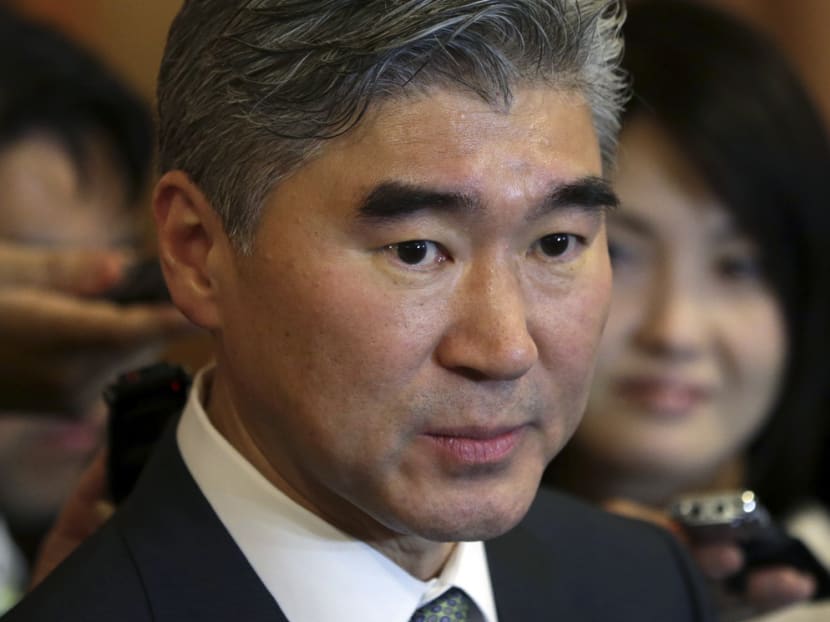US, allies to increase ‘pressure, sanctions’ on N Korea
SEOUL — Top negotiators of the United States, Japan, and South Korea — three of six countries involved in stalled talks aimed at ending North Korea’s nuclear programme — agreed yesterday to increase “pressure and sanctions” on North Korea to dissuade the North from military provocations.
SEOUL — Top negotiators of the United States, Japan, and South Korea — three of six countries involved in stalled talks aimed at ending North Korea’s nuclear programme — agreed yesterday to increase “pressure and sanctions” on North Korea to dissuade the North from military provocations.
“We agreed on the importance of enhancing pressure and sanctions on North Korea even as we keep all diplomatic options on the table open,” Mr Sung Kim, US special representative for North Korea policy, told journalists after the trilateral meeting with his counterparts from South Korea and Japan. Mr Kim said the three governments also agreed to work with the international community to address the “grave” human rights situation in North Korea.
Mr Junichi Ihara, director-general of the Japanese Foreign Ministry’s Asian and Oceanian Affairs Bureau, told reporters they held “earnest discussions” on how to deal with nuclear and missile-related developments in North Korea and views “converged on many points”.
As for steps to be taken against North Korea, South Korea’s chief delegate Hwang Joon Kook, special representative for Korean Peninsula peace and security affairs, said: “Discussions are under way (on) what concrete steps may be taken in the context of which kind of steps will be effective.”
Mr Kim and Mr Hwang are scheduled to visit China today for similar consultations with Mr Wu Dawei, China’s chief nuclear envoy. Beijing has a history of resisting tough moves against Pyongyang not mandated by resolutions of the United Nations Security Council, on which it sits with veto power. Mr Kim stressed the importance of maintaining “five-party unity” along with Russia and China in dealing with the North Korea issue.
The six-party talks, which involve China, Japan, Russia, South Korea, the US as well as North Korea, have been deadlocked since late 2008.
The trilateral talks came at a time of heightened tensions on the Korean Peninsula. North Korea’s National Defence Commission announced in a statement issued on May 20 that the country has succeeded in miniaturising nuclear warheads, saying its “nuclear striking means have entered the stage of producing smaller nukes and diversifying them”.
Its May 9 announcement that it had succeeded in test-firing of a Submarine Launched Ballistic Missile (SLBM) triggered security concerns in South Korea that the North could deploy SLBMs in a year or two after completing the last stages of development.
In addition to the fresh show of force, South Korea’s state intelligence agency presented a report to parliament recently on North Korean leader Kim Jong-un’s reported reign of terror.
The National Intelligence Service, in a closed-door report to parliament, said North Korea’s Defence Minister Hyong Yong Chol was executed for treason by antiaircraft gunfire around April 30 and more than 70 senior officials have been killed since he took power in December 2011. KYODO NEWS







